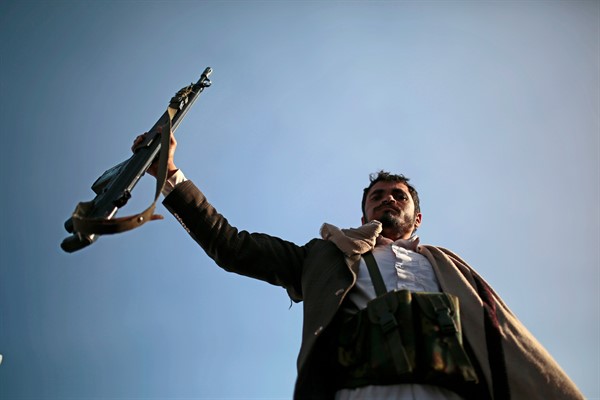For U.S. officials who worked under former President Barack Obama, many of whom are now beginning or contemplating jobs in Joe Biden’s administration, the war in Yemen casts a long shadow. What started on their watch as a primarily internal power struggle has since metastasized into a messy and multilayered conflict. It is the world’s most dire humanitarian crisis, involving alleged violations of international law—many of them perpetrated with American-made arms—and has become a potential trigger for a region-wide conflagration. For much of Biden’s foreign policy team, then, Yemen represents both unfinished business and, potentially, a small but significant piece of a wider course correction in U.S. policy toward the Middle East.
This perhaps explains why the new administration has been so active on Yemen. Since taking office three weeks ago, Biden has moved to reverse the Trump administration’s last-minute designation of Yemen’s Houthi rebels as a terrorist organization, initiated a review of U.S. Yemen policy, and named veteran diplomat Timothy Lenderking as special envoy to the country. In a centerpiece of Biden’s first major foreign policy speech on Feb. 4, he announced that the U.S. will halt “offensive support” for the Saudi-led coalition’s war effort in Yemen, including the transfer of precision-guided munitions, while “stepping up” diplomatic support for United Nations-led mediation efforts.
More vigorous U.S. involvement in ending the war is welcome news, but the Biden administration should proceed with the full picture in mind. It should work with Saudi Arabia—whose involvement in the Yemen war has been a major contributing factor to the human suffering there, though not the only one—and others to either implement a cease-fire or deescalate fighting along key front lines as much as possible, and to alleviate the humanitarian crisis.

